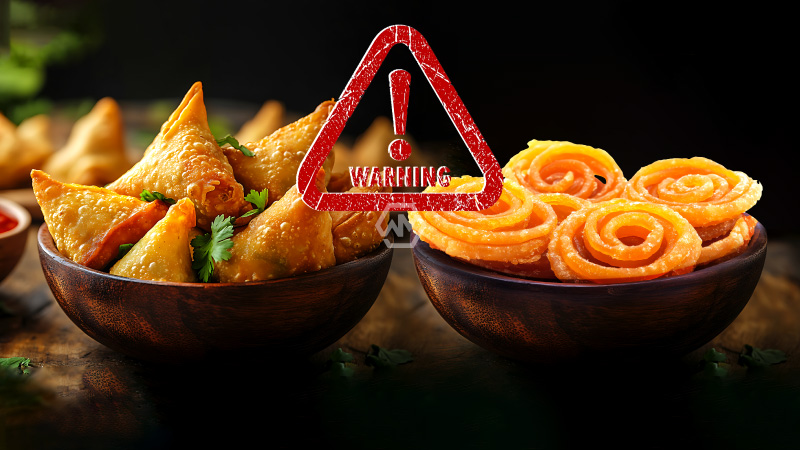- India‘s Health Ministry promotes awareness on high sugar and trans fat in popular snacks.
- Samosas and jalebis may face public warnings in government institutions.
- Experts link daily consumption to obesity, heart disease, and diabetes.
India’s beloved snacks—samosas and jalebis—are facing growing scrutiny as public health officials push for awareness around unhealthy food choices.
Medical experts warn that daily consumption of these snacks can cause more harm than most realize. Samosas, typically fried in reused oil, are high in trans fats, which elevate bad cholesterol and lower good cholesterol, contributing to heart disease.
From Street Food to Health Risk: Why Samosas and Jalebis Are No Longer Just Tasty Treats
The Indian government’s new advisory is not a ban but a push for greater transparency in food awareness. These educational posters are being placed in cafeterias and public spaces to nudge citizens toward mindful eating. It reflects a shift in how food is viewed—not just as nourishment or culture, but as a factor in long-term health outcomes.
According to recent statistics from the Poshan Tracker, 6% of children under five enrolled in Anganwadi centres are already overweight or obese. This rise in childhood obesity has triggered concern within the Ministry of Women and Child Development, prompting urgency in health messaging around snack foods commonly available and consumed.
Nutritionally, 100 grams of jalebi can contain around 356 calories, while a same-sized samosa has roughly 362 calories. These are energy-dense, nutrient-poor foods offering little more than immediate gratification. Experts say it’s not the occasional indulgence that’s dangerous—it’s the regular, unconscious consumption that causes real damage over time.
Cultural traditions and health goals often collide, and in India, where food holds deep emotional value, the challenge is immense. Rather than vilify snacks, health advocates are calling for balance—educating people on portion control, cooking methods, and healthier substitutions that retain flavour without risking long-term health.
As India navigates its growing health challenges, beloved snacks like jalebi and samosa serve as a reminder that tradition must evolve with awareness.
“Let food be thy medicine and medicine be thy food.” – Hippocrates



